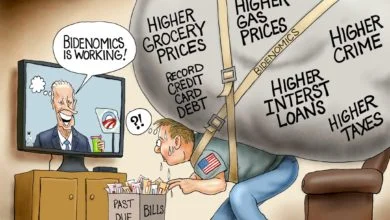Hybrid Homeschooling and the Benefits of a Decentralized Education System
I presented at a conference last week hosted by the Harvard Kennedy School on emerging school models. I talked about the growth and diversification of the microschooling and hybrid homeschooling movement that was already underway prior to 2020 and that has since accelerated.
Now, more families recognize the tremendous value of these hybrid homeschool programs and similar microschool models. They are increasingly seeking them out, while entrepreneurial parents and educators meet this mounting demand by creating more of these offerings.
The Rainbow Room in Las Vegas, Nevada is an example of one of these hybrid homeschool models. Founded three years ago by homeschooling mother of 4, Emily Grégoire, the Rainbow Room offers a full-day, drop-off program for homeschooled children twice a week. The rest of the week, the children are at home with their families or participating in other activities throughout their community. This is part of a burgeoning ecosystem of nontraditional learning models and schooling alternatives in the greater Las Vegas area, as well as across the US.
Grégoire and I talked more about the evolution of her hybrid homeschool offering and education entrepreneurship more generally in the latest episode of the LiberatED Podcast:
The growing popularity of hybrid homeschool programs such as Grégoire’s was the topic of the Harvard panel on which I spoke. After my remarks and those of the other panelists, we took questions from the audience. One person expressed concern about the expansion of the microschool and hybrid homeschool movement, saying that it could create an even more polarized, atomized culture, while arguing that public schooling brings people together.
I was the first to respond. I explained that public schooling is actually a major instigator of our current cultural polarization and discontent. By design, public schooling creates winners and losers, as parents vie for political power in local school board meetings and throughout their communities. It is a battle of wills, where one side will necessarily prevail and get their preferred educational vision accepted into the district while others are defeated. Neal McCluskey at the Cato Institute does a great job of highlighting these conflicts in his Public Schooling Battle Map. His new book, The Fractured Schoolhouse, goes even deeper.
A free market of education options, by contrast, is based on voluntary association and exchange. It is characterized by consent, not coercion. By allowing families greater choice over their children’s education, the cultural temperature will go down. More diversity of learning options means that parents will be able to choose a learning environment for their children that is aligned with their educational needs and preferences. There will be no need to fight anyone for power because that power will lie with each individual consumer, just as it does in all other areas of our lives.
Think about it: If we had local grocery boards determining what we were allowed to eat and where we were allowed to shop, there would be similar polarization and discontent—not unity. Thankfully, we don’t have mandatory assigned grocery stores based on our zip code, paid for through compulsory taxation. We have choices. We shop where we want to and eat the food that reflects our individual preferences.
Rather than escalating cultural strife, decentralizing education and encouraging the proliferation of education entrepreneurship and more diverse learning models will lead to a much more peaceful society.
Like this story? Click here to sign up for the LiberatED newsletter and get education news and analysis like this from Senior Education Fellow Kerry McDonald in your inbox every week.
Content syndicated from Fee.org (FEE) under Creative Commons license.
Agree/Disagree with the author(s)? Let them know in the comments below and be heard by 10’s of thousands of CDN readers each day!




